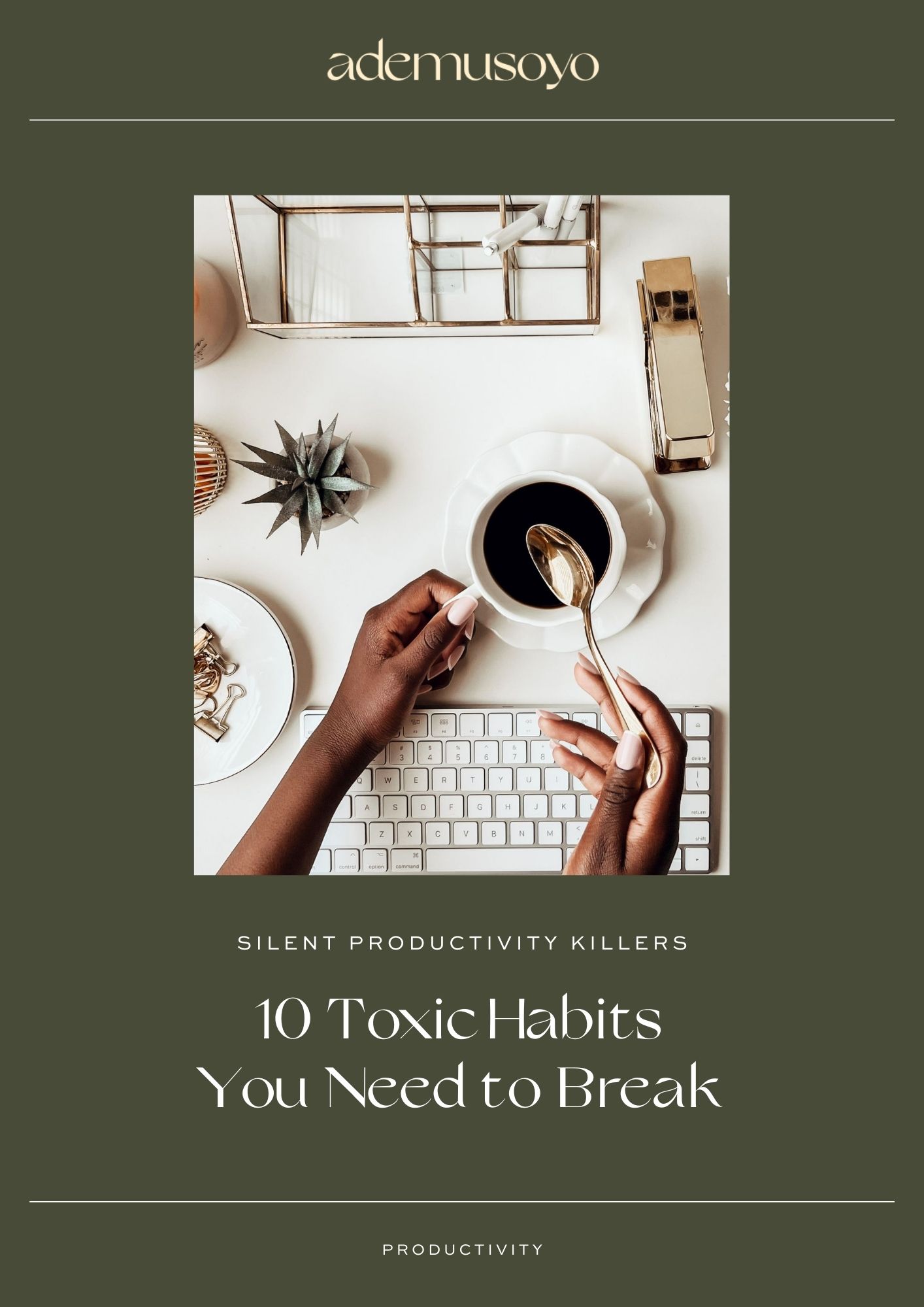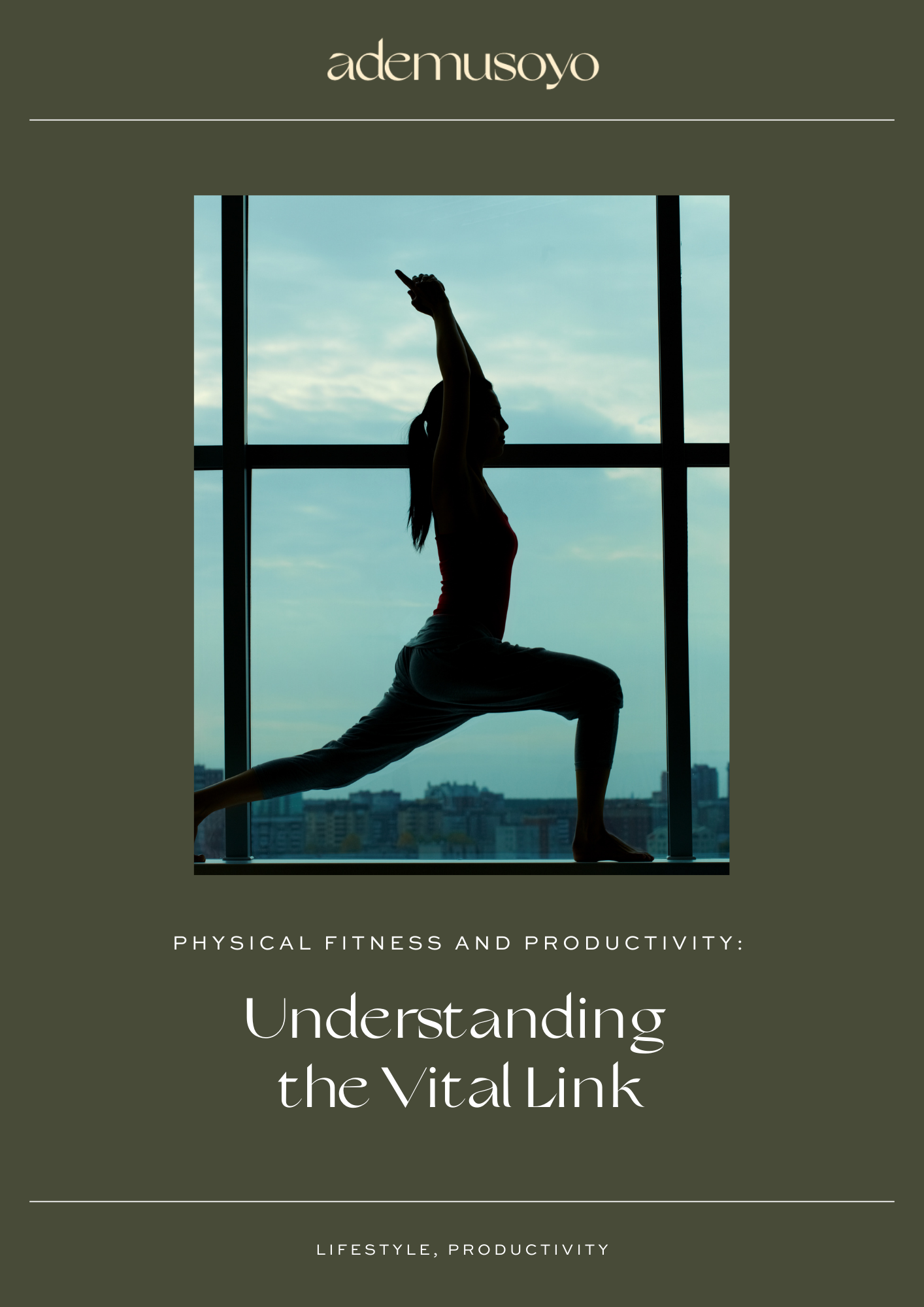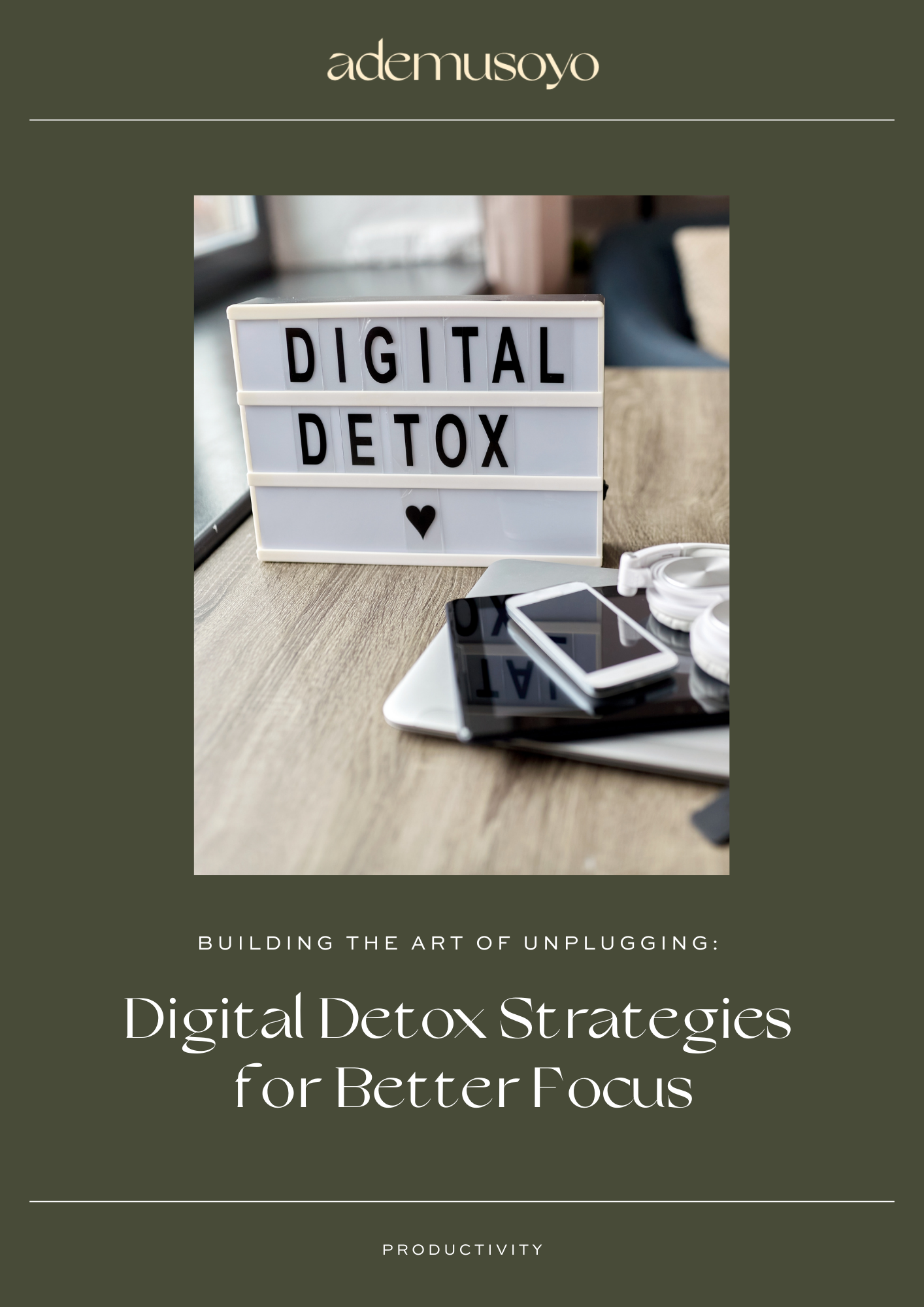Are your productivity levels not where you want them to be? From mindlessly scrolling through social media to falling victim to perfectionism, these toxic habits can hinder your ability to focus, stay organized, and complete tasks efficiently. It’s important to recognize the negative impact they can have on your productivity and take steps to overcome them. By breaking these toxic habits, you’ll be able to regain control of your time and energy, enabling you to achieve more and reach your goals. Now is the time to identify and eliminate those silent productivity killers that may be holding you back. In this article, we’ll explore 10 toxic habits that can sabotage your productivity and provide you with actionable strategies to break free from them.
The impact of toxic habits on productivity
Toxic habits are a significant barrier to our productivity. They sap our energy, cause us to lose focus, and lead to overwhelm. When you have these habits, every day feels like a constant battle to make progress even if you seem busy. The key to reaching our full potential starts with identifying what is killing our productivity.
When we’re able to identify what is causing our productivity levels to drop, we can start to take the steps we need to replace those bad habits with good habits. Replacing bad habits with good habits does take time but the journey toward that self-development takes things to the next level.
Habit 1: Procrastination: How Delaying Tasks Impacts Your Productivity
Procrastination is a common struggle that many of us face when it comes to managing our time effectively. Whether it’s putting off small, medium, or large tasks, we can all relate to the temptation to procrastinate. However, succumbing to procrastination can have detrimental effects on our ability to accomplish our goals and hinder our progress.
The reason why we are procrastinating at our core is because we are trying to avoid something. When you’re able to understand and identify the cause of your procrastination, you can then make steps towards overcoming it to continue working towards your goals.
Habit 2: Multitasking: Why Juggling Tasks Decreases Efficiency
One of the biggest killers of productivity is the fact that you’re not managing your time effectively. Time is a finite resource, and how you use it can greatly impact your ability to achieve your goals and live a balanced life. Prioritize tasks based on their importance and urgency to make the most of your time.
Start by creating a to-do list and categorizing tasks into “must-do,” “should-do,” and “nice-to-do.” Focus on completing the must-do tasks first, as these are the ones that will have the most significant impact on your goals and overall well-being. Additionally, avoid multitasking. Research shows that it can decrease productivity and increase stress. Instead, practice focusing on one task at a time. Set specific time blocks for different activities throughout the day using the Pomodoro technique, and try to eliminate distractions during those periods.

Habit 3: Perfectionism Paralysis: Overcoming the Urge for Perfect Results
Perfectionism can often lead to inaction due to the fear of making mistakes. Making mistakes is a natural part of the learning process and offers valuable opportunities for growth and improvement. By overcoming the urge for perfection, you open yourself up to new learning experiences and continuous development. Embracing imperfection allows you to identify areas for improvement and achieve greater success in the long run.
If you struggle with perfectionism or are afraid to fail, my biggest advice to you is to just start. It’s okay that the first time isn’t good. That gives you something to work with. When you’re trying to do something uncomfortable or new, it’s normal to have those feelings of anxiety or fear. However, you can’t let that stop you. One thing I always like to remind myself is that “done is better than perfect”. Starting makes the task feel more manageable, boosting your motivation to continue.
Habit 4: Distraction Overload: Tackling Technology and Interruptions
Have you ever started on something and then completely got distracted only to never return? In today’s world, distractions from social media, family, friends, and work interruptions are constant.
One effective way to avoid these distractions is by using the Pomodoro method. This technique involves setting a timer for 25-30 minutes, working uninterrupted, and then taking a short break. It’s a great time management strategy that helps you track your productivity within a specific timeframe. Working in 25-minute intervals with breaks in between keeps you focused and prevents fatigue and distraction.
Habit 5: Poor Time Management: Strategies to Combat Time-Wasting Behaviors
Time management is crucial for achieving your goals, boosting productivity, and balancing personal and professional life. Effective time management involves developing a system to prioritize tasks, set goals, and allocate time efficiently. With a solid strategy, you can manage your to-do list without feeling overwhelmed and find more time in your day to accomplish essential tasks.
When it comes to managing your time, here are some tips and strategies that I recommend:
- Time blocking: I want to make sure that I give myself at least 2-3 hours of focus time each day. This is the time when I play some music on Spotify and use the Pomodoro method to complete my work. During this uninterrupted period, I avoid checking Slack messages until my break time.
- Daily planning: Each day, I review my to-do list and calendar, then write everything down in a physical planner. This helps me identify gaps in my schedule to complete tasks.
- Use your calendar: Relying on memory for important tasks can lead to forgetfulness. By using your calendar for meetings, appointments, tasks, and social engagements, you ensure nothing falls through the cracks.

Habit 6: Overcommitting: Saying No to Avoid Burnout and Overwhelm
Burnout comes in many forms and looks different to each individual. It can be summarized as a state of emotional exhaustion, overwhelm, and frustration. If you’re wondering whether or not you burned out, ask yourself:
- On a scale of 1-10, how motivated are you to create something new?
- Do you have any new content ideas that you’re excited to execute?
- Do you find yourself rushing to just get something out there?
- Are you dreading a new week because you don’t have content created?
To overcome burnout, here are some tips that I recommend:
- Establish better systems and routines: Creating a routine and structure helps you work through tasks smoothly. Routines don’t need to be rigid; they should flow naturally, allowing you to care for yourself while working.
- Ask for help when you need it: Instead of waiting until you’re overwhelmed, seek support early. Being aware of your projects and tasks helps you identify areas where you need assistance, allowing you to reach out to your team or loved ones for help.
- Consume less than you create: Filter out sources of negativity such as jealousy, anger, or distrust. Set limits on how much you scroll and ensure your environment is filled with positivity that sparks new ideas, but only in manageable amounts.
Habit 7: Lack of Planning: How Failing to Plan Leads to Productivity Pitfalls
Planning is when you bring the future into the present.
Effective planning brings clarity and reduces feelings of overwhelm. By dedicating time to plan your week, you gain direction and purpose, boosting overall efficiency.
A structured approach to organizing tasks and commitments not only optimizes productivity but also helps you prioritize effectively. It empowers you to identify potential challenges and conflicts in advance, allowing for necessary adjustments to ensure a smoother, more productive week. Weekly planning also supports a better work-life balance by ensuring you allocate time for both work-related tasks and personal activities.
Habit 8: Negative Self-Talk: Transforming Self-Doubt into Self-Encouragement
Having a positive mindset about your work can make tasks easier to accomplish. This mindset is crucial because it shapes how you approach your tasks and your attitude toward any challenges that arise. Embracing positivity can transform your work experience and enhance your productivity.
Some of the ways that I try and develop a more positive mindset are:
- Writing 3 things that I’m grateful for
- Meditation & Yoga
- Reframing my language from saying “I have to” to “I get to”
Reframing your mindset makes the work you’re doing, whether enjoyable or not, more manageable and feasible. You can overcome negative thoughts and emotions, you can master the art of doing and achieving more. When I’m feeling down or hard on myself, these are some of the affirmations that I recommend:
- Practice how you play
- I am capable of living the life that I want
- You become what you believe
- You already have what it takes
- Show me how good it can get
- Done is better than perfect

Habit 9: Cluttered Workspace: Clearing Physical and Digital Spaces for Focus
Maintaining a clean and organized digital and physical workspace is more than just about aesthetics; it’s a key productivity strategy. Clearing away clutter creates a more focused and efficient work environment, leading to improved concentration, a smoother workflow, and less time spent searching for files or documents.
So, the next time you’re feeling overwhelmed or unproductive, take a moment to organize your workspace. You might be surprised at how much of a difference it can make.
Habit 10: Ignoring Breaks: Understanding the Importance of Rest and Recovery
We all need moments to slow down. Stepping away can be tough, but it’s essential for protecting your sanity and preventing burnout. Taking breaks allows you to reflect, evaluate what went well and what didn’t, and set new goals. Life is a marathon, not a sprint, and sometimes you need to pause to assess your progress. Breaks help you feel refreshed and bring new energy to your tasks and life.
Breaking free from toxic habits: Tips for cultivating positive work habits
From mindlessly scrolling through social media to succumbing to perfectionism, these toxic habits can hinder your ability to focus, stay organized, and complete tasks efficiently. By breaking these habits, you can regain control of your time and energy, enabling you to achieve more and reach your goals. Identify what is stopping you from reaching your full potential. Don’t let these toxic habits impede your success any longer – it’s time to take back control. If you’re ready to start planning and goal setting, I recommend you grab my Goals and Habits Tracker Notion Template.









0 Comments